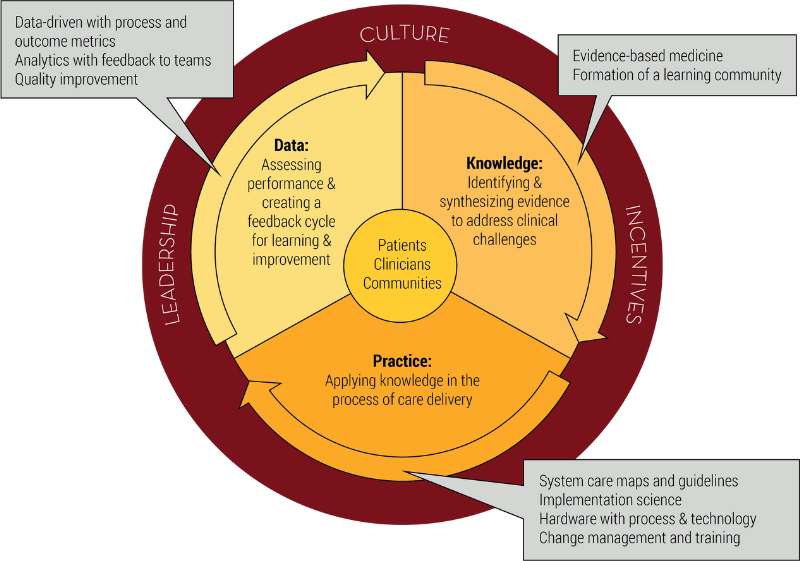About Center for Learning Health System Sciences
Our Mission
To foster fast, continuous learning within Minnesota’s healthcare systems where evidence informs practice and data from practice generates new knowledge.
Our Goals
- Build a distinguished research and education program for Learning Health System sciences
- Accelerate the application of science to transform and improve patient care and affect population health
- Seamlessly integrate research, care delivery, and continuous improvement to create new knowledge and directly improve care
What is a Learning Health System?
A Learning Health System (LHS) is a cycle between research and healthcare practice. Research findings are used to improve clinical practices which then generate data that can be used for more research.
The Institute of Medicine (National Academy of Medicine) describes a Learning Health System as:
“A system in which science, informatics, incentives, and culture are aligned for continuous improvement and innovation, with best practices seamlessly embedded in the care process, patients and families as active participants in all elements, and new knowledge is captured as an integral by-product of the care experience.”
Learning Health Systems are critical to improving patient care and reducing the time it takes for research findings to make it into healthcare practice.
Building a Learning Health System involves identifying a challenge in healthcare delivery, gathering evidence on the challenge, implementing a change, and evaluating that change by collecting data on its impact.

Our 2023 Annual Report is now available!
Research & Services
We help researchers and practitioners develop, implement, and evaluate their ideas through a range of services.
Education
We educate researchers and practitioners on learning health system topics through seminars, training programs, and more.
Data & Tech Infrastructure
We build infrastructure to support CLHSS projects that also benefits researchers who want to collaborate with our partners.